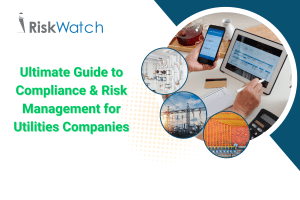
Introduction
In the ever-evolving landscape of the utilities sector, Compliance & Risk Management has become a critical component of operations. As regulatory requirements continue to tighten, utilities companies must navigate a complex web of rules and regulations to ensure they remain compliant and avoid costly penalties.
In the utilities sector, protecting the widespread infrastructure is paramount. This necessitates thorough risk evaluations, implementation of cutting-edge safety protocols, and a dedication to perpetual enhancement. The emphasis is on maintaining the reliability and security of utility services, with a priority on infrastructure resilience. Such professional commitment reduces risks and bolsters the sector’s reliability and trust.
The Importance of Compliance & Risk Management
Compliance and Risk Management is not just about avoiding fines and penalties. It’s about safeguarding the company’s reputation, maintaining customer trust, and ensuring the safe and reliable delivery of services. A robust compliance risk management strategy can help utilities companies identify potential risks, implement controls to mitigate those risks, and monitor compliance on an ongoing basis.
Key Compliance Risks in the Utilities Sector
Utilities companies are subject to a wide range of regulations, from environmental standards to safety regulations. Non-compliance can result in hefty fines, legal action, and damage to the company’s reputation.
PCI: A security standard ensuring all companies handling credit card information maintain a secure environment.
FERC: This aims to ensure that consumers have access to efficient, safe, reliable, and secure energy services at a reasonable cost through appropriate regulatory and market means.
NERC: It develops and enforces reliability standards, monitors the bulk power systems, and educates, trains, and certifies industry personnel.
These frameworks help utilities companies manage compliance risk, protect their reputation, and ensure safe and reliable service delivery. Compliance isn’t just about avoiding penalties – it’s about operating responsibly and ethically in a complex regulatory environment.
With the increasing digitization of the utilities sector, cybersecurity has become a significant compliance risk. Utilities companies must comply with regulations designed to protect critical infrastructure from cyber threats.
Utilities companies handle a vast amount of customer data, making data privacy a key compliance risk. Companies must comply with data protection regulations to ensure the privacy and security of customer data.
Best Practices for Compliance Risk Management
The first step in managing compliance risk is to conduct a comprehensive risk assessment. This involves identifying potential compliance risks, assessing their impact, and prioritizing them based on their likelihood and severity.
Once the risks have been identified, companies should develop policies and procedures to manage those risks. These should be clearly communicated to all employees and regularly reviewed and updated.
Employees should be provided with regular training and education on compliance requirements and the company’s policies and procedures. This helps to ensure that everyone understands their responsibilities and can contribute to the company’s compliance efforts.
Regular monitoring and auditing are crucial for ensuring ongoing compliance. This involves checking that policies and procedures are being followed, and that controls are effective in mitigating risks.
RiskWatch: A Solution for Compliance Risk Management
RiskWatch offers a compliance and risk assessment platform that increases efficiency by an average of 80% compared to completing assessments with manual processes. It supports over 40 regulatory compliance frameworks for risk, compliance, security, and quality management.
Conclusion
Compliance and Risk Management is a critical aspect of operations in the utilities sector. By understanding the key risks, implementing robust policies and procedures, and conducting regular monitoring and auditing, utilities companies can effectively manage risk and ensure the safe and reliable delivery of services.
Remember, compliance is not just about ticking boxes – it’s about protecting your company, your customers, and the community at large. So, make Compliance & Risk Management a priority today.

